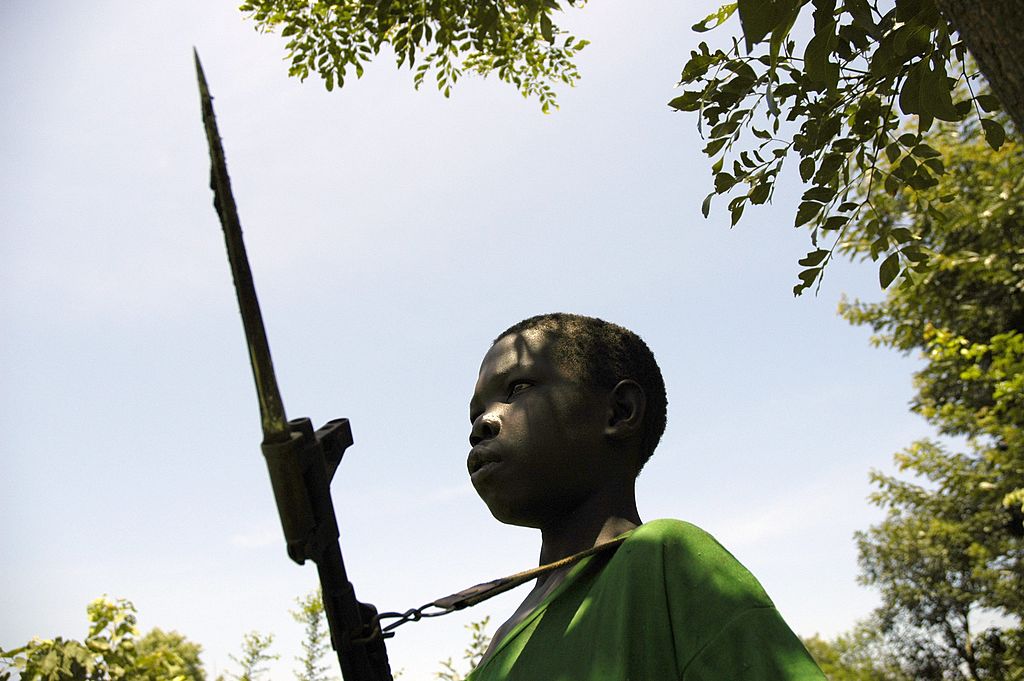Before the rise of streamers, influencers, and content creators, before QAnon and before Russiagate, there was Kony 2012. In March of that year, a thirty-minute film about Joseph Kony, the leader of the Lord’s Resistance Army (LRA) and an obscure Ugandan warlord whose best days were already behind him, reached a level of viral fame previously unknown. Oprah Winfrey, Justin Bieber, Rihanna, and Kim Kardashian all shared the video, which passed the 100 million views mark within a week, a record on YouTube at the time.
The film was created by an organization called Invisible Children, which — according to its website — was “founded in 2004 to help end two decades of mass violence and child abductions by Joseph Kony and his Lord’s Resistance Army.” It has not aged well. Throughout the film, the camera pans over images of suffering Ugandan children while Jason Russell, the narrator and founder of Invisible Children, sighs before insisting that something has to be done, that we have to act now. By “act now,” Russell meant that the US military should intervene and apprehend Kony. While Kony became a household name, fame took its toll on Russell, and soon after “breaking the internet,” he had a breakdown; police arrested him in suburban San Diego where he was found naked, banging his fists on the pavement and screaming about the devil. He now runs a creative agency called Broomstick.
If Kony 2012 is remembered at all these days, it is usually as the punch line of a joke. But the campaign represented a turning point in the history of online politics. It pointed to a model of politics that relied on the strange belief that generating online engagement could lead to social change. Moreover, cultivation of this belief represented a…
Auteur: Benjamin Fogel

